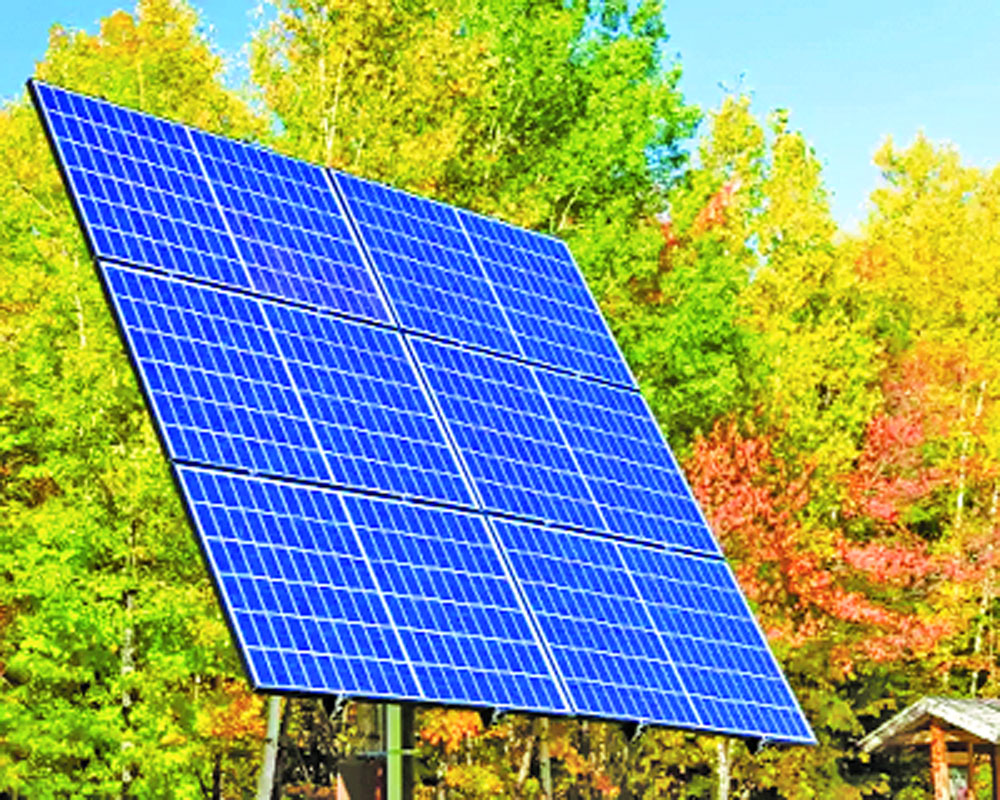The current Indian environment is very congenial to produce solar panels as we have competence and a huge demand for solar panels
The Indian economy has essentially grown keeping agriculture and services as pillars. At the same time, the manufacturing sector remained largely absent. Moreso, when it comes to hi-tech manufacturing like semiconductors, robotics automation etc. India, having grown tremendously in past decades, now requires the manufacturing sector to come to the forefront of economic growth. Also, India aims to become carbon neutral by 2070. It requires a mammoth task of electrification and installation of renewable energy sources. Currently, India majorly imports solar panels from China, for the domestic panel manufacturers have limited updated capacity. Also, the production capacities of upstream products like cells, and wafers are very limited.
Therefore, with our dependence on foreign supplies, the net zero mission along with the GDP growth will be dependent on the vagaries of foreign equipment suppliers. In a nutshell, heavy reliance on imports for strategic products like renewable equipment and major upstream products is something we should not accept as this may severely limit our targets. Moreover, this robs us of India’s capabilities to further develop high-efficiency equipment and restricts our abilities to foray into ancillary and equipment manufacturing streams, which are critical growth enablers for an economy. Needless to state that these imports would lead to a huge chunk of foreign capital moving out of India, thus increasing the CAD (Current Account Deficit) of India.
Currently, Indian solar equipment manufacturing is not cost-competitive if we compare it with the manufacturing of Chinese players. The government of India acknowledged this shortcoming and levied numerous tariff and non-tariff barriers. E.g. BCD (Basic Customer Duty) of 25% and 40% on Solar cells and modules respectively. However, the gap can be fundamentally filled only if India achieves scale in production, and develops the supply chain of raw materials and R&D infrastructure. To achieve scale, the Government of India made an appreciative effort to launch the Production Linked Incentive (PLI) scheme for Solar manufacturing, under which the bidders were required to bid based on the extent of integration, technology, and local sourcing.
The PLI – tranche 1 of INR 4500 cr. was concluded in 2021 with an accumulative winning capacity of ~ 9 GW, while the PLI – tranche 2 of INR 19500 cr. is recently concluded with a cumulative winning capacity of ~ 40 GW. The scheme prefers high-efficiency solar panel manufacturing. The rolling out of the PLI scheme demonstrates the government’s focus on developing the full supply chain of high-efficiency solar modules, including the ancillary supply chain. However, based on the PLI scheme rollout, a full-blown ecosystem with a meaningful scale will take up to 3 years to get developed and start production. In the meanwhile, for India to be aggressive in the solar energy installation targets, it must rely heavily on imported solar modules.
The current Indian regulatory environment is very congenial to produce solar panels domestically as the competence gap is addressed along with a huge forthcoming solar demand in India and other major economies. There will, however, be reliance on imports for more technical products like robotics, equipment for production, and technologically advanced raw materials like silver paste, diamond wire etc. Once the required downstream infrastructure is developed, India Inc. will have the scale and motivation to develop these elements of production to further reduce the cost of the solar panel. With this development, India can step up its R&D activities, which would build products in other economic streams thus drastically reducing dependence on overall imports.
(The writer is General Manager- Strategic Initiatives, Amp Energy India)

























